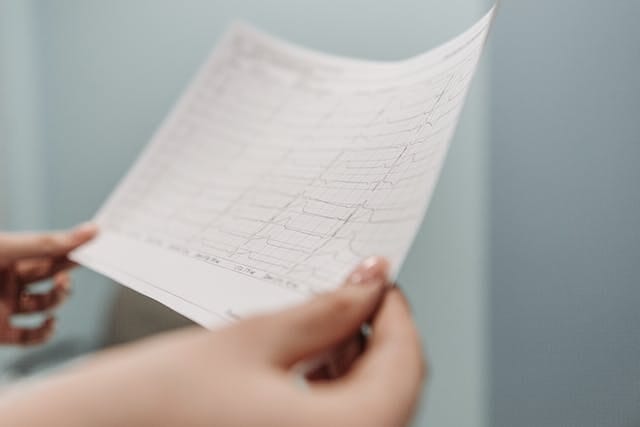
What is a Normal ECG Report? What does an Abnormal Reading Mean?
Time to read 2 min
Time to read 2 min
A normal ECG report is your heart rate beating at between 60 - 100 beats per minute. The different types of waves, such as the S wave and the QRS complex, are studied to check for predetermined patterns indicating a condition.
You may have sharp peaks and valleys, indicating a rapid heartbeat problem. You may also have different R-R intervals, which can indicate an irregular heartbeat issue. These can be further analyzed with MRIs, CT scans, ultrasounds, and TMT tests.
The P wave, the T wave, the ST segment, and the analysis of the QRS complex is used to understand the functioning of the heart. Deflections in the R wave, T waves, PR interval, etc. can be analyzed with complete referencing data for your diagnosis.
To the extent that your wave is in the normal range, it is considered a normal reading. If it is detected that the readings are fluctuating beyond the normal range then an abnormal reading is determined. This could be due to a number of reasons, such as heart rate issue, angina, infection, etc.
There are pre-set standards for heart rates, which take into account the different waves and their patterns. The common heart problems, such as angina, infection, heart attack risk, fibrillation, etc., can be checked for and a diagnosis provided.
An ECG is performed in the case that you are experiencing the key symptoms of heart issues. These may include indicators such as chest pain, irregular heart beat, fluttering, issues with heart rate at rest. You may also experience night heart rate issues, panic heart rate, and problems with steady breathing.
You may experience these in the short term or long-term, and need a test done to determine the root problem. You can get an ECG done in a lab to know if there is any risk factor present that can cause an issue.
You should also get further testing done if there is an abnormal ECG reading. This can help in getting you treatment, including medication if there is another condition detected. You should also get ECGs done regularly after 60 years as well.
An ultrasound is highly recommended if you have prior issues with heart problems or you have a potential site of injury. It can also be beneficial in the case that there is a medical history of heart issues.
A treadmill test is one of the best options when it comes to checking heart rate after an ECG. A TMT test will be able to capture your heart rate at rest and in motion, to check for anomalies that may occur.
A complete blood test will be able to determine if there are issues involving triglycerides, cholesterol, RBC, WBCs, etc. that need to be checked. Your medical history can be tracked as well to determine any root causes.
An MRI scan can provide accurate information about the heart's chambers, functioning, and sites of damage. An MRI is highly recommended if there are significant aberrations in the ECG.
You can book an ECG test through MyDiagnostics in India. Our platform can provide the best heart testing solutions for people of all ages, with expedient reporting and accurate results.
**Medical Disclaimer - The following information is for educational purposes only. No information provided on this website, including text, graphic, and images, are intended as substitutes for professional medical advice. Please consult with your doctor about specific medical advice pertaining to your condition(s)
